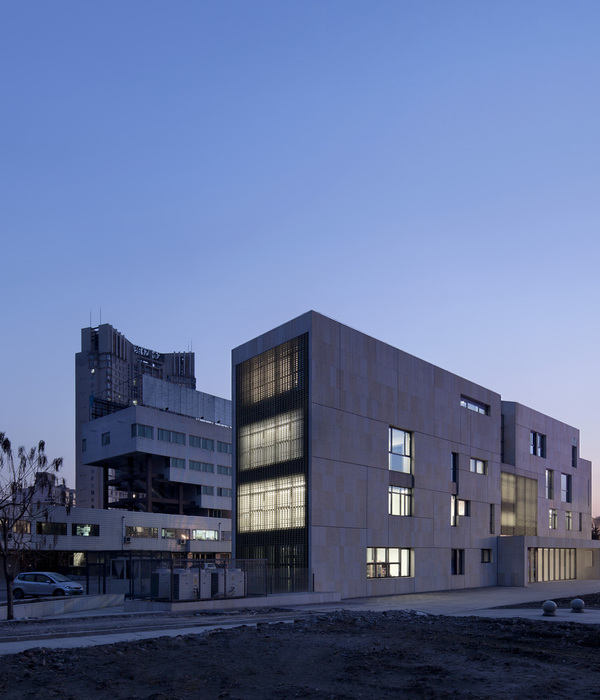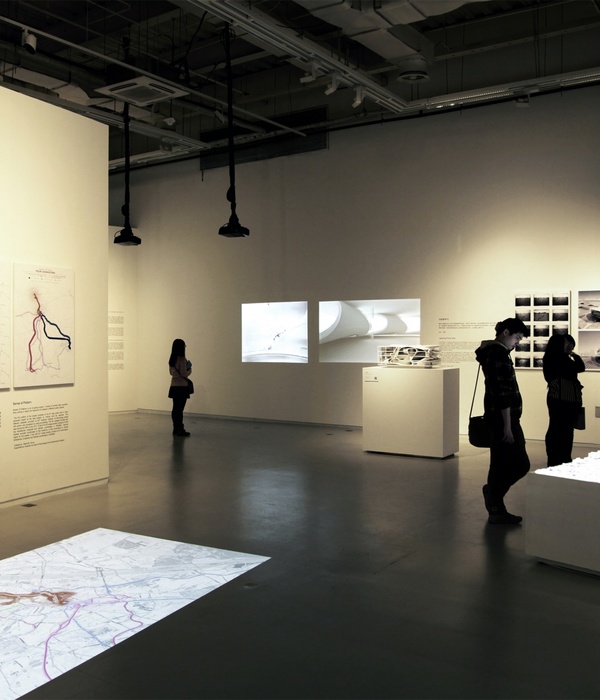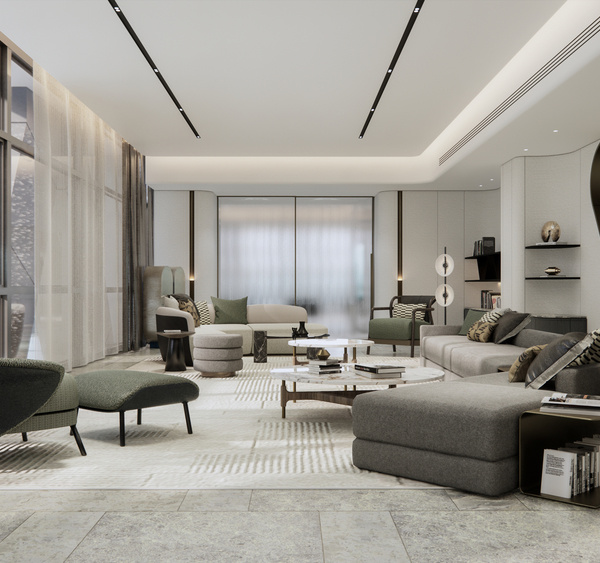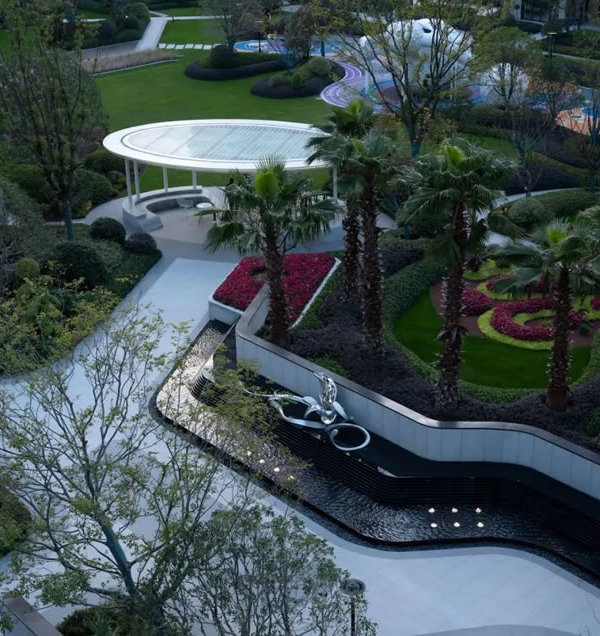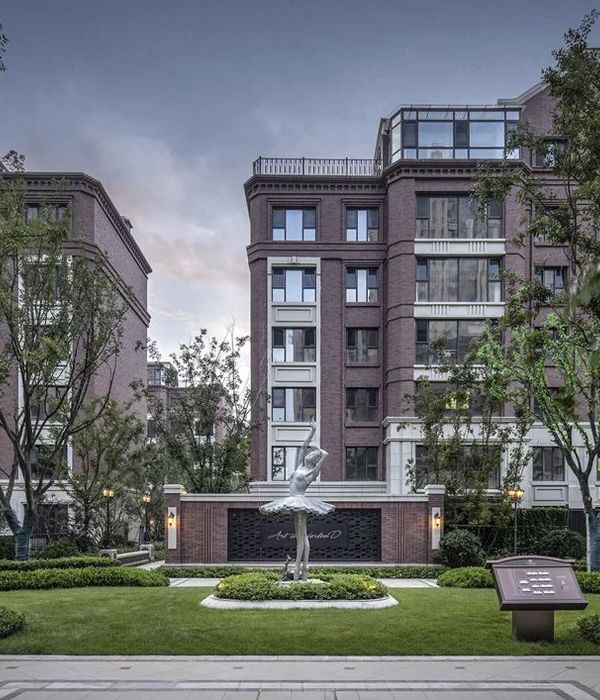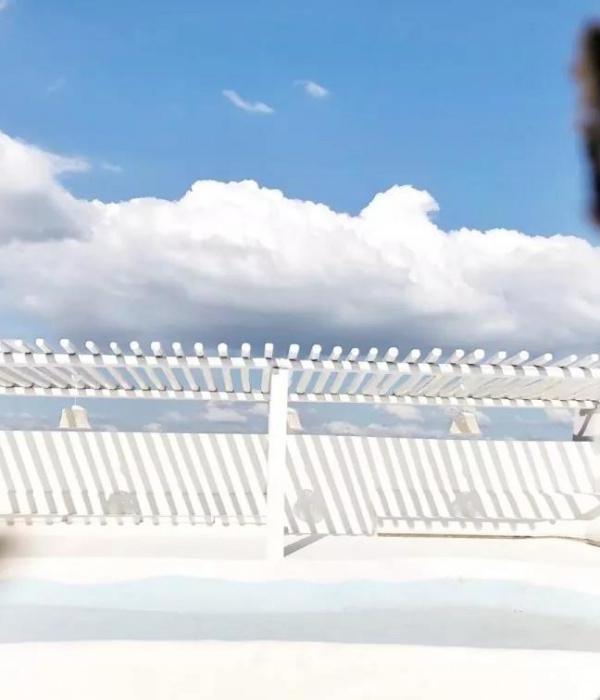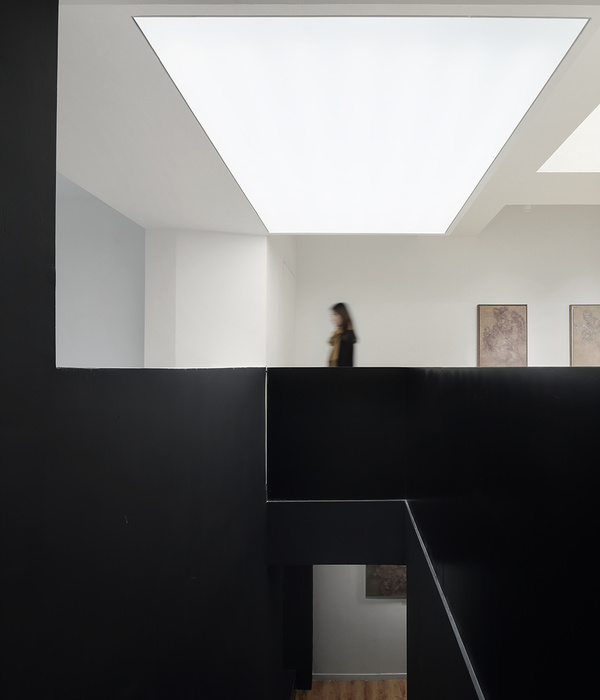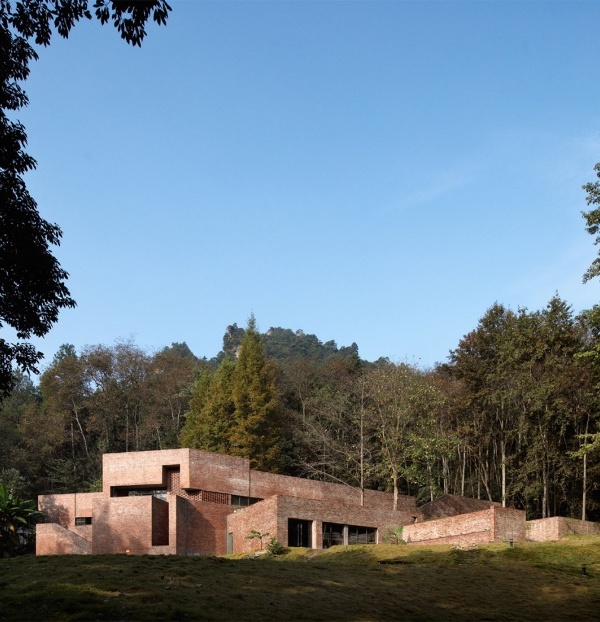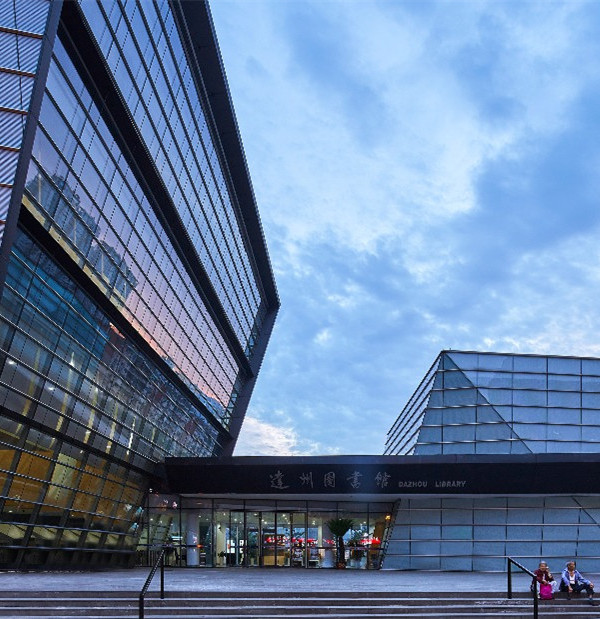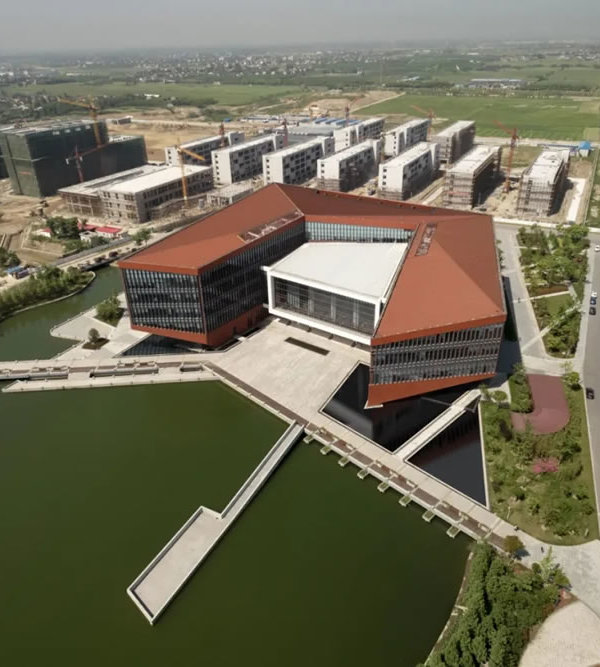- 项目名称:2015年米兰世博会爱沙尼亚馆
- 设计方:Kadarik Tüür Arhitektid
- 分类:商业建筑
- 设计团队:Ott Kadarik,Mihkel Tüür,Priit Hamer,Kadri Tamme,Liis Mägi,Tanel Trepp,Kristi Tuurmann
- 摄影师:Filippo Poli
2015 Milano Expo Estonian Pavilion
设计方:Kadarik Tüür Arhitektid
位置:意大利 米兰
分类:商业建筑
内容:实景照片
设计团队:Ott Kadarik, Mihkel Tüür, Priit Hamer, Kadri Tamme, Liis Mägi, Tanel Trepp, Kristi Tuurmann
图片:20张
摄影师:Filippo Poli
这是由Kadarik Tüür Arhitektid设计的2015年米兰世博会爱沙尼亚馆。该展馆的名称是“……的画廊(Gallery of _)”,象征着整个展馆的自然特点,展现爱沙尼亚的活力、小巧与智慧。该展馆对富有创造力的爱沙尼亚人来说是一个开放的平台,整个展馆的建筑理念是基于为举办各种表演、展览、行为和演示等活动提供最佳的条件。该展馆不仅仅是为形式而建,还是用内容如与建筑生命的构架。
一个开放的平台也意味着一个透明和灵活的商业环境,这有利于推动新举措和全球进程。展馆二层有一个旋转主题展览,展示那些令爱沙尼亚人引以为荣的活动,集中展示了创新型企业、地产解决方案、绿色乡镇企业、乡村旅游、创意产业和艺术。爱沙尼亚馆使用了绿色措施及其可回收的模块,与世博会的主题“滋养地球,生命的能源”联系到一起。一层和二层的展览讲述着爱沙尼亚人源于自然的故事,并利用当代技术和设计手段赋之予新的形式和功能。访客将会记住这里温馨、开放和好客的氛围,以及精彩的活动、扣人心弦的故事、稀有的自然之声、技术的简约之美、美食和优美的音乐。
译者: 艾比
From the architect. The title of the Estonian pavilion, “Gallery of _”, symbolises the nature of the entire pavilion and, more broadly, the idea that Estonia is a dynamic and smart small country, with every citizen’s initiative but also every foreign investment, collaboration with international reach and foreign investor affecting how it fares. “Gallery of __” is an open platform for creative Estonian people, who will fill it with life and content. The architecture of the entire pavilion is created based on the idea that it should create the best conditions for holding various performances, exhibitions, actions and presentations. The pavilion will not be form for form’s sake but rather a framework for content that will bring the building to life.
The philosophy of the pavilion rests on democratic Nordic values that respect every individual’s right to self-expression and creativity. What is more, it as if this is indeed a model of a dynamic democratic small country: how it fares may be influenced by all who are doing something there or who visit there. Collective creative output will be formed, which can be complemented by new ideas and contemporary applications. The final nature of the pavilion will form up with Estonian creative people but also with all the visitors, who will be provided with an experience of Estonia through the collective impact of nature, technology, culture and cuisine.
More broadly, an open platform also means a transparent and flexible business environment that favours new initiatives, as well as responsible connection to global processes. Upon closer inspection, this idea informs all the activities and initiatives that we are proud of in Estonia and that we wish to zoom in on the 2nd floor of the pavilion, in rotating themed exhibitions: a separate exhibition area will be provided on 2nd floor of the pavilion for the focused presentation of innovative companies, e-state solutions, green rural enterprise, rural tourism, creative sectors and fine arts. All presented themes and stories told by us will be intertwined with the pervasive theme at the pavilion: Estonia as a country of nature, creativity and innovation.
The pavilion will be linked to the main theme of the EXPO, “Feeding the Planet, Energy for Life”, by the green execution of the pavilion and the subsequent recycling of its modules, a food programme paying tribute to organic Estonian raw ingredients and talented chefs, and the permanent exhibition recounting on both the ground floor and 2nd floor, Estonia’s stories born in nature, given a novel form and functionality by means of contemporary technology and design. Guests at the pavilion have free choice of what activities, facts or stories to weave into their personal experience of Estonia. The most important thing that anyone entering the pavilion should remember is a warm, open and hospitable atmosphere, laced with exciting facts, gripping stories, rare sounds of nature, elegant technological simplicity, tasty bites and good music.
The pavilion is created to be a multi-functional environment for holding performances and presenting creative output. The space will draw its meaning and atmosphere primarily from events held at the pavilion (concerts, exhibitions, presentations, conferences etc). The architectural premise for the pavilion will be a space with a clear identity, enabling visitors to get an idea of what Estonia is about. The pavilion is structured as a gallery of nature and creativity.
The pavilion composes of “nestboxes” stacked off-centre like cubes, forming the main volume of the building towards the Russian pavilion and along the side of the road inside the quarter. A “nestbox” is a high room creating a chamber-like sectioned-off area of space. After the end of the EXPO, these modular-assembly elements would travel back to Estonia and be used there as children’s play grounds, natural viewing points or, for instance, bus stop shelters. Theoretically, it will be possible to dismantle the entire Estonian pavilion and to set it up in the exactly the same form in Estonia.
The main opening of “Gallery of_” towards the south, Decumanus, entry from which, under a high, lofty awning, along with the spacious interior creates a powerful experience. Additionally, there will be entrances from the plaza to the north and between boxes from the street. With its openness, the pavilion both invites EXPO visitors and allude to Estonians’ openness to innovations and the world. The building will have three floors. The ground floor houses a kitchen with ancillary premises, bars and a souvenir stand. Furthermore, “nestboxes”, forming cosy “compartments”, which together with the rest of the exhibition space on the ground floor provides visitors with an opportunity to quench their thirst for information about Estonia.
Immediately upon entering off Decumanus, there is an area planned for a stage which, consisting of 1.2 x 1.2 m modules, will be flexible and capable of being readily re-arranged as needed. Access to the 1st floor will be provided by a narrow stairway will lead along the west side of the building and an airy double-flighted stairway from the centre of the building. On the first floor, the main exhibition area profiling Estonia, our entrepreneurs and sectors, where visitors will be able to explore in-depth sectoral achievements. Similarly, the first floor will house a “rye bar” recounting the story of Estonia as a unique country producing clean rye.
The 2nd floor houses a roof garden where plants and trees characteristic of Estonia set the tone. Plants are placed in dedicated containers with space in between for walking or sitting, inviting visitors, for instance, to also have a picnic, if they so desire, with a picnic set bought from the ground floor to take away. Access to the 2ndfloor is provided through the stair wells on the north side of the building. Adjacent to the rear northern side of the building above the small plaza, a lounge has been planned for holding business meetings for a smaller group of people in a cosy setting on soft furniture with a view of the garden on the 2nd floor.In addition, the second floor houses utility rooms and premises for the staff and management of the pavilion. All three floors are inter-connected by stairs, with the main stairs open to all and the rear stairs used as escape stairs or by staff moving between various floors. Furthermore, a platform lift will be installed in the building for mobility-challenged persons.
The interior architecture design is based on a single comprehensive design for the exterior and interior space, doing away with boundaries between the two. Comprehensiveness is emphasised by the copious use of wooden surfaces, creating rhythmic repetitions along with the pixel structure of the building. The design of the space has been created to be as multi-functional as possible, so that it may be re-arranged according to need and the programme happening at the pavilion. The interior design will be simple and intended as a neutral backdrop for the widely used LED-screen presentation space in the interior. Based on the rationale for the space, wooden box modules will employ various standard designs: swing module, presentation modules with LED screens on floor 1, rotating exhibition module on floor 2, conference room module and blocks of ancillary premises.
The open general area on the ground floor with a green counter of potted plants create a fresh and flexible space enabling various programme events to be held. The general area on the ground floor is bordered by rhythmically alternating energy swing nests and permanent exhibition nests with LED screens. Near the block of ancillary premises, there are drinking fountains of clean water for visitors. First floor provides more privacy. In the middle, there is a rye-themed bar and an area with suspended chairs for hanging out, complemented by groups of tables with bar stools for conversation and supporting food or drink. The spatial rationale of floor 1 continues, with exhibition space alternating with private energy swing nests.
The roof garden on the second floor are open to all those interested; it is bordered by conference rooms for invited guests and meeting appointments. Between plant boxes in the roof garden there will be provided sitting modules and an oasis with a dime and warm lighting design. The roof garden is surrounded by a gallery with an awning, giving access to the block of offices / conference rooms. The concept of nooks and crannies and of private nests for the entire building will be supported also by the lighting design at the pavilion, which will be automatically adjustable according to the natural night / day light conditions.
2015年米兰世博会爱沙尼亚馆外部实景图
2015年米兰世博会爱沙尼亚馆内部空间实景图
2015年米兰世博会爱沙尼亚馆内部局部实景图
2015年米兰世博会爱沙尼亚馆平面图
2015年米兰世博会爱沙尼亚馆立面图
2015年米兰世博会爱沙尼亚馆剖面图
{{item.text_origin}}


